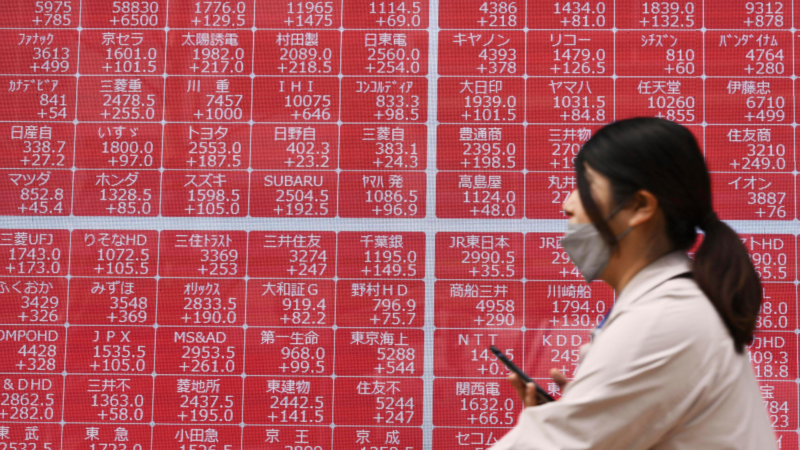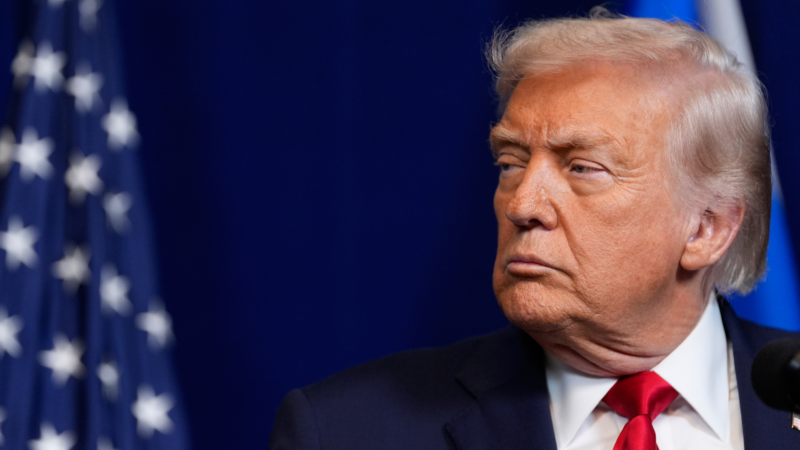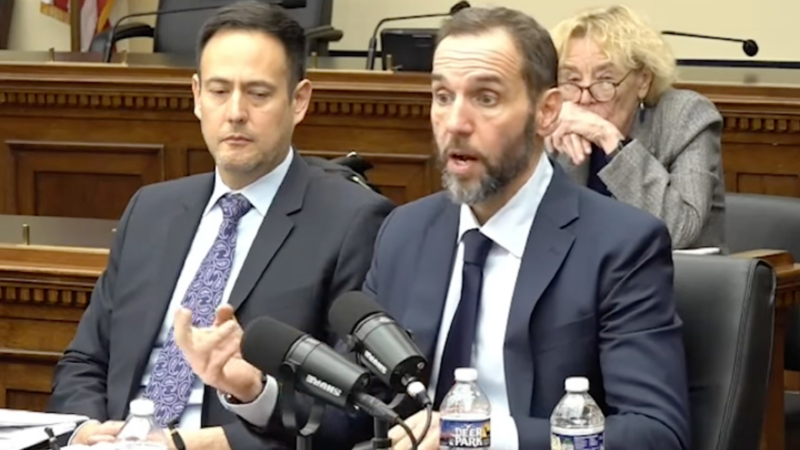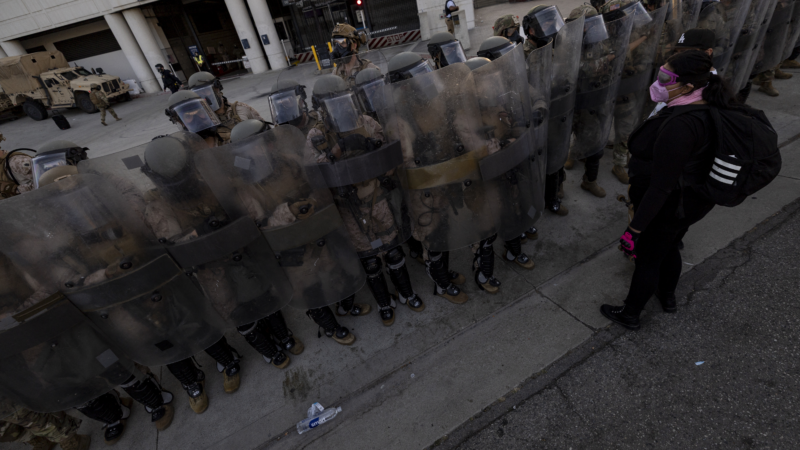Asia markets soar, after President Trump pauses global tariffs
HONG KONG – Asian markets soared on Thursday in line with Wall Street’s gains the day before, following President Trump’s announcement of a pause on his higher global tariffs.
Japan’s Nikkei soared 9.1%, while South Korea’s Kospi jumped 6.6%, taking the Seoul index out of bear market territory. Taiwan’s composite index spiked 9.25%, staging a strong comeback just days after it logged its biggest one-day drop on record.
Hong Kong’s Hang Seng Index also gained 2%, while key indices in China also rose slightly.
But investors are still looking to Beijing for reaction. Trump not only excluded China from the pause on tariffs, but actually hiked them further, imposing tariffs on the country to a staggering 125% on Chinese exports on Wednesday.
The higher levy came just hours after Beijing announced retaliatory duties of 84% on American goods imported to China.
Trump’s steeper tariffs had been in effect for only about 12 hours when he said he would suspend them for the next 90 days. The announcement was made during Wall Street trading hours, and sent U.S. stocks surging.
In a post on Truth Social early Thursday, Trump wrote “What a day, but more great days coming!!!”
Trump thinks China’s leader will strike a deal
Analysts say Trump’s higher tariffs on China will have a limited impact on the country’s economy. T. Rowe Price analyst Wenli Zheng said in a research note that on one of China’s main stock markets Chinese businesses have a “surprisingly low revenue exposure to the U.S.”
Still, many investors say they would rather see an end to this explosive trade war between the world’s two largest economies.
Meanwhile, China’s foreign ministry spokesman Lin Jian said on Thursday that China is prepared to continue fighting.
“Let me stress that tariff wars and trade wars have no winners. China does not want to fight them, but will not fear when they come our way,” Lin said at a regularly scheduled press conference.
Speaking from the Oval Office on Wednesday, Trump repeated a previous assertion that China would eventually negotiate with the U.S.
“President Xi’s a very smart guy and I think we’ll end up making a very good deal,” he said.
The president added he didn’t think the U.S. would need to further increase tariffs to bring Beijing to the bargaining table.
“I can’t imagine it,” he said.
China has signaled it is willing to negotiate, but only if the U.S. administration changes its attitude.
“If the U.S. really wants to talk, it should show an attitude of equality, respect and mutual benefit,” Lin, the foreign ministry spokesman, said Thursday.
Asian countries welcome more time to strike deals with the U.S.
Meanwhile, several other Asian economies breathed a sigh of relief, and welcomed more time to negotiate trade deals and avoid steeper tariffs. Nonetheless, a baseline tariff of 10% will remain in place for all countries during the 90-day suspension of higher tariffs that particularly targeted Asian manufacturing hubs, like Vietnam and Cambodia.
“Now that we have an additional 90 days, we can discuss in more detail the economic and trade cooperation between Taiwan and the United States,” said Lin Chia-lung, Taiwan’s foreign minister. The island state sells billions of dollars worth of data servers and semiconductors to U.S. tech companies, though the latter were excluded from the most recent round of tariffs. Lin added that Taiwan is committed to buying more American goods and increasing investments in the U.S. Taiwan had been facing a 32% tariff hit on its exports to the U.S., before Trump announced his temporary reprieve.
South Korea’s top trade envoy, Cheong In-kyo, also said Thursday the tariff suspension provides room for negotiations, according to Reuters. Cheong had flown to Washington to discuss with U.S. trade officials reducing tariff rates and non-tariff trade barriers between the two countries.
Japan and the United States are also due to begin trade talks soon.
Ashish Valentine contributed to this report.
Zohran Mamdani sworn in as New York City mayor, capping historic rise
Mayor Zohran Mamdani took the oath of office in New York City after midnight Thursday. The city's first Muslim mayor, a member of the Democratic Socialists of America, has promised to focus on affordability and fairness.
Rising from the ashes, a symbol of hope at the Rose Parade
Survivors of the Eaton and Palisades Fires find healing and community working on a Rose Parade float to honor the lives and communities lost in last year's wildfires.
The history behind the NYC subway station chosen for Mamdani’s swearing-in
The city shut down the station in 1945 on New Year's Eve. Eighty years later, it's a symbolic venue choice for the incoming mayor's private swearing-in ceremony.
U.S. military strikes 5 more alleged drug boats, killing 8
The U.S. military says it struck five alleged drug-smuggling boats over two days. The attacks killed eight people, while others jumped overboard and may have survived. U.S. Southern Command did not reveal where the attacks occurred.
Capitol riot ‘does not happen’ without Trump, Jack Smith told Congress
Former special counsel Jack Smith also described President Trump as the "most culpable and most responsible person" in the criminal conspiracy to overturn the 2020 election results, according to a transcript of Smith's closed-door interview with the House Judiciary Committee.
Trump will drop push for National Guard deployments in Chicago, LA and Portland, Ore.
Courts blocked troops from deploying in Chicago and Portland, Ore., and the Los Angeles deployment effectively ended after a judge blocked it earlier this month.







